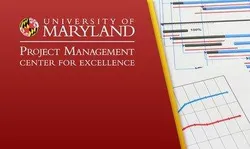
Field Operations and Administrative Tools in Construction Management 
This course provides an overview of the field operations and administrative tools used in construction management. It covers topics such as cost estimation, budgeting, scheduling, and risk management, which are essential for successful project completion. Students will gain an understanding of the various costs associated with construction projects, and how to effectively manage them. ▼
ADVERTISEMENT
Course Feature
![]() Cost:
Cost:
Free
![]() Provider:
Provider:
Edx
![]() Certificate:
Certificate:
Paid Certification
![]() Language:
Language:
English
![]() Start Date:
Start Date:
Self paced
Course Overview
❗The content presented here is sourced directly from Edx platform. For comprehensive course details, including enrollment information, simply click on the 'Go to class' link on our website.
Updated in [March 06th, 2023]
This course provides an overview of field operations and administrative tools in construction management. Students will learn about the different types of estimates used in small and large projects during planning and design, the uses of schedules and types of scheduling methods, and how the schedule is a powerful construction management and communication tool. Additionally, students will explore project control, the administrative tools used to manage, control, and document the construction management process, and the legal rules that govern the design and construction management processes. Safety procedures will also be reviewed.
[Applications]
Upon completion of this course, students should be able to apply the knowledge gained to their own construction management projects. They should be able to use the various tools and techniques discussed to create accurate estimates, develop effective schedules, and control costs. Additionally, they should be able to identify and understand the legal rules that govern the construction management process, as well as the importance of safety procedures.
[Career Paths]
Job Position Paths:
1. Construction Manager: Construction managers are responsible for overseeing the entire construction process from start to finish. They are responsible for managing the budget, scheduling, and ensuring that the project is completed on time and within budget. They must also ensure that all safety regulations are followed and that the project meets all legal requirements. Construction managers must have strong organizational and communication skills, as well as a thorough understanding of the construction process.
2. Estimator: Estimators are responsible for creating accurate estimates of the cost of a construction project. They must be able to accurately assess the cost of materials, labor, and other costs associated with the project. Estimators must also be able to analyze the project and make recommendations for cost savings. Estimators must have strong math and analytical skills, as well as a thorough understanding of the construction process.
3. Project Manager: Project managers are responsible for overseeing the entire project from start to finish. They are responsible for managing the budget, scheduling, and ensuring that the project is completed on time and within budget. They must also ensure that all safety regulations are followed and that the project meets all legal requirements. Project managers must have strong organizational and communication skills, as well as a thorough understanding of the construction process.
4. Safety Manager: Safety managers are responsible for ensuring that all safety regulations are followed on a construction project. They must be knowledgeable about all safety regulations and be able to identify potential hazards and develop strategies to mitigate them. Safety managers must also be able to train workers on safety procedures and ensure that they are followed. Safety managers must have strong communication and organizational skills, as well as a thorough understanding of safety regulations.
Developing Trends:
1. Construction managers are increasingly using technology to streamline the construction process and improve efficiency. This includes the use of software to manage budgets, schedules, and other aspects of the project.
2. Estimators are increasingly using technology to create more accurate estimates. This includes the use of software to analyze the project and make recommendations for cost savings.
3. Project managers are increasingly using technology to manage the project more effectively. This includes the use of software to track progress, manage budgets, and communicate with stakeholders.
4. Safety managers are increasingly using technology to ensure that safety regulations are followed. This includes the use of software to track safety incidents and ensure that workers are following safety procedures.
[Education Paths]
Recommended Degree Paths:
1. Construction Management: Construction management is a field of study that focuses on the planning, coordination, and control of construction projects. It is a rapidly growing field, and those who pursue a degree in construction management will be prepared to work in a variety of roles in the construction industry. This degree path is becoming increasingly popular as the demand for skilled construction managers continues to grow.
2. Civil Engineering: Civil engineering is a field of engineering that deals with the design, construction, and maintenance of public works such as roads, bridges, dams, and other infrastructure. Civil engineers are responsible for ensuring that these projects are completed safely and efficiently. This degree path is becoming increasingly popular as the demand for skilled civil engineers continues to grow.
3. Architecture: Architecture is a field of study that focuses on the design and construction of buildings and other structures. Architects are responsible for creating aesthetically pleasing and functional structures that meet the needs of their clients. This degree path is becoming increasingly popular as the demand for skilled architects continues to grow.
4. Building Science: Building science is a field of study that focuses on the science and technology of building construction. It is a rapidly growing field, and those who pursue a degree in building science will be prepared to work in a variety of roles in the construction industry. This degree path is becoming increasingly popular as the demand for skilled building scientists continues to grow.
Course Provider

Provider Edx's Stats at AZClass
Discussion and Reviews
0.0 (Based on 0 reviews)
Explore Similar Online Courses

How to Draw From Beginner to Master
![Make Money On Youtube Without Making Videos [2022 Edition]](/ccsimg/dcs/img_tools/8b5f9e80ff88a0e81e1beb069c47f9c1.webp)
Make Money On Youtube Without Making Videos [2022 Edition]

Python for Informatics: Exploring Information

Social Network Analysis

Introduction to Systematic Review and Meta-Analysis

The Analytics Edge

DCO042 - Python For Informatics

Causal Diagrams: Draw Your Assumptions Before Your Conclusions

Whole genome sequencing of bacterial genomes - tools and applications

Forklift Operation Safety

Using Telehandlers


Start your review of Field Operations and Administrative Tools in Construction Management